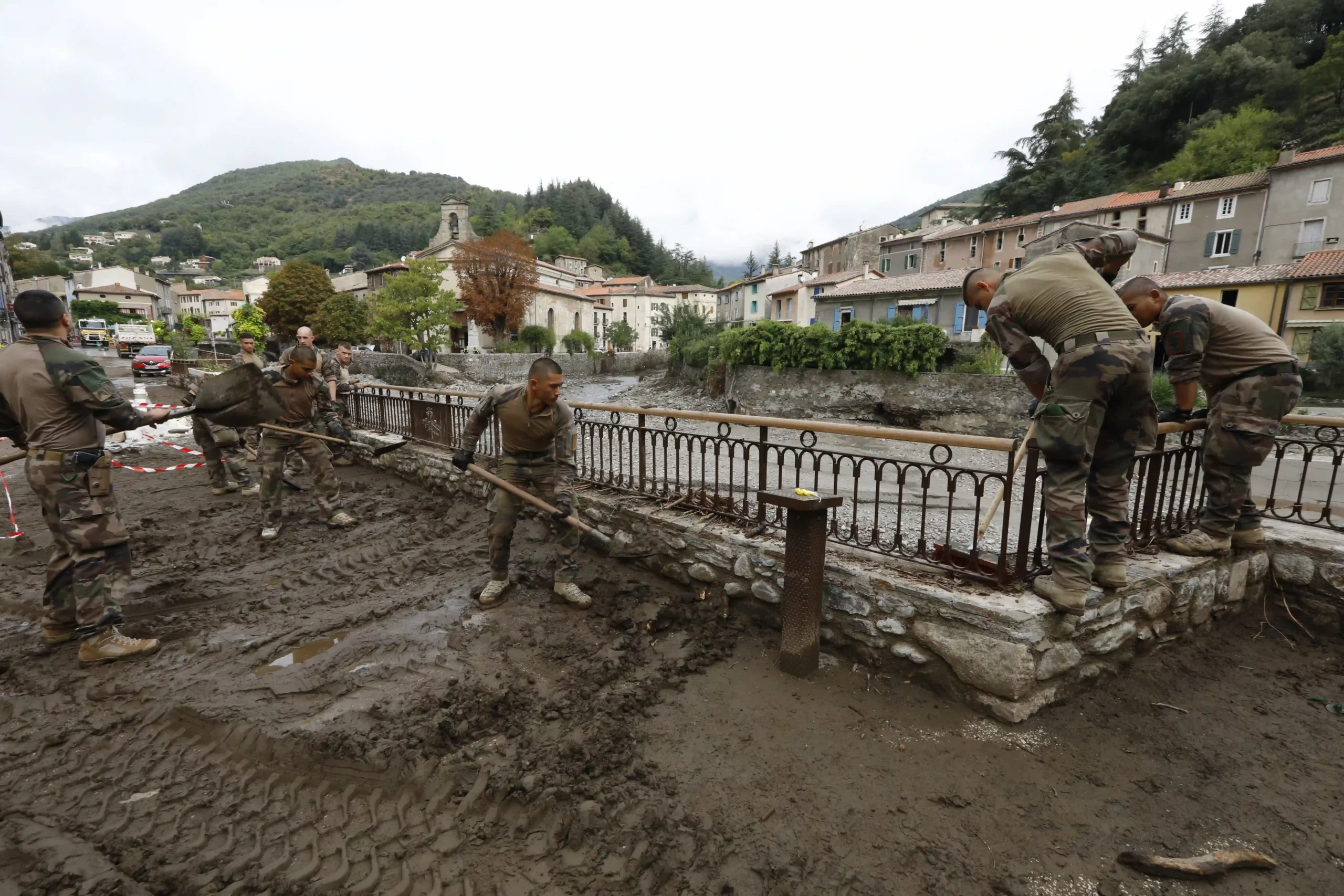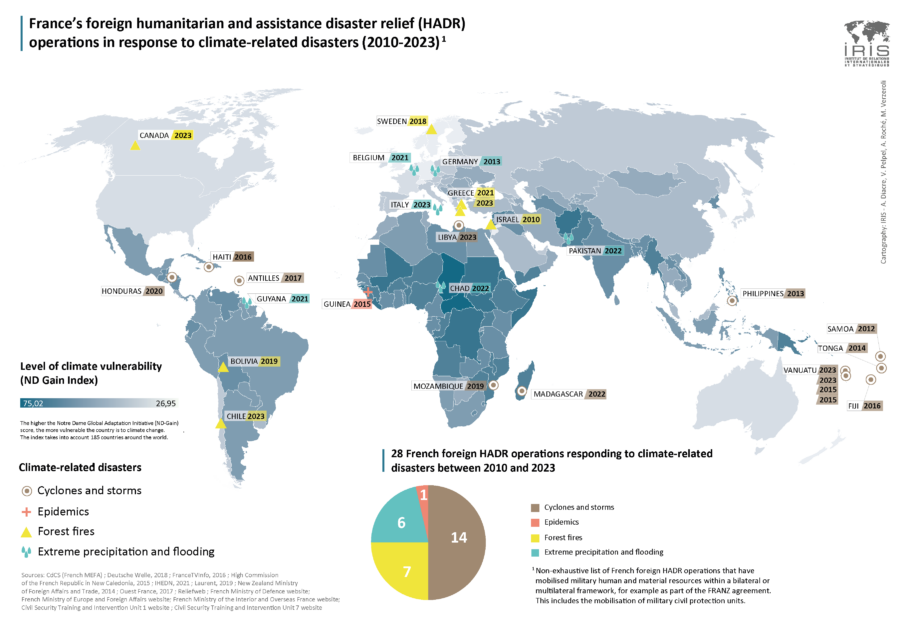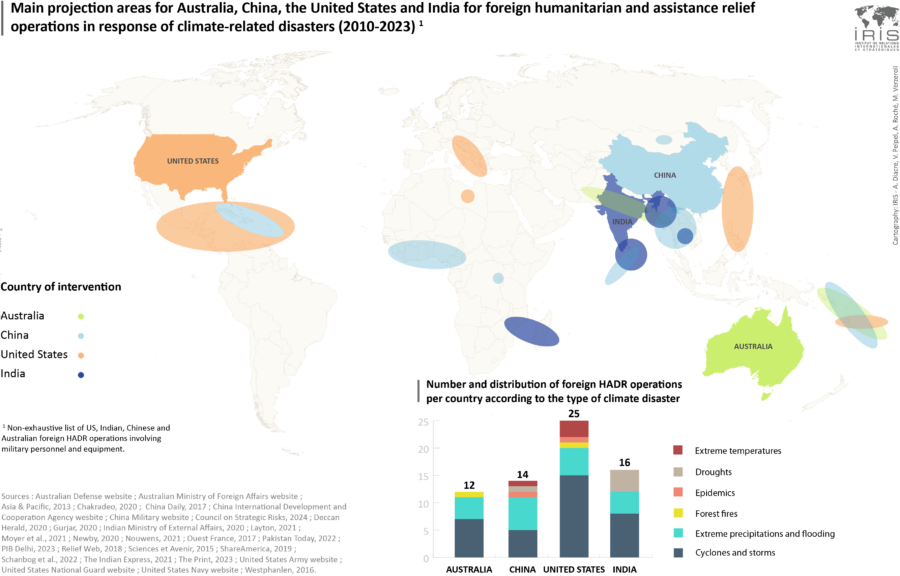Humanitarian Assistance and Disaster Relief Operations in Response to Climate-Related Disasters: What Role and Challenges for the French Armed Forces ?
This note analyses climate change impacts on humanitarian assistance and disaster relief (HADR) operations carried out by the French armed forces in response to climate-related disasters. It is divided into three parts: climate change impacts on the evolution of HADR operations in France along with the operational and capability consequences for French armed forces (I), followed by an analysis of the use of HADR operations abroad as a lever for military influence and power by nations active in this field such as the United States, China, France, India and Australia (II). Finally, three foresight scenarios for 2050 are suggested along with recommendations for the Ministry of Armed forces (III).

In France, in response to extreme weather events, civil protection and civil protection military units (ForMiSC) provide emergency assistance to disaster-stricken victims. Civil protection missions in response to climate disasters are not increasing over the period 2014-2023 but are more marked by activity peaks. Conversely, the number of HADR operations carried out by French armed forces in response to climate disasters has increased by 200% between 2007 and 2023, in response to requests from civil protection forces at local, departmental or zonal levels.
The increased commitment of armed forces has led to operational and capability challenges, as well as a wider reflection on civil protection missions of armed forces. One of these challenges is the over-solicitation of air capabilities, which are the primary resources mobilised in the event of climate-related disasters.
These climate change adaptation gaps of civil protection units contribute to the risk of French armed forces losing their capacity to cope with the increase and intensification of climate disasters.
France participated in numerous HADR interventions, on all continents, and in response to all types of disasters. However, the United States (US) and China are the most active countries in this field, distinguishing themselves specifically by the geographical extent of their interventions.
Many countries are involved in HADR operations abroad to support allied states, or to intervene on the territory of states that are part of influence projection strategies. The climate vulnerability of a state thus becomes an issue of sovereignty and strategy, insofar as a particularly exposed or vulnerable state will potentially have to accept help from other states on its territory.







